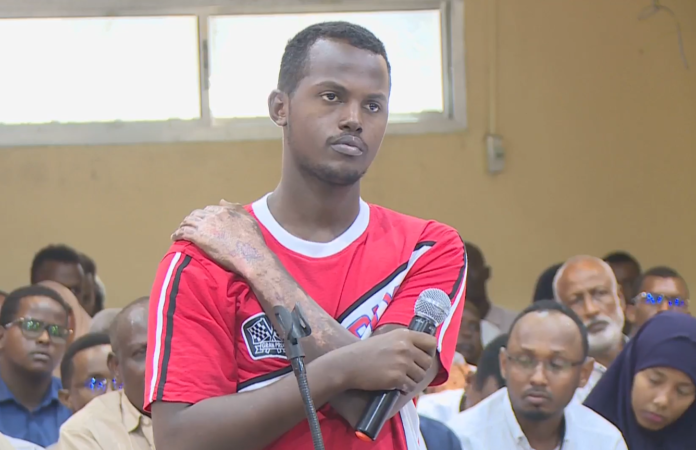Mogadishu, Somalia – The Supreme Court of Somalia has commenced hearings for the appeal lodged by Sayid-Ali Moalin Daud, who was sentenced to death for the brutal murder of his wife, Lul Sheikh Abdiaziz, by setting her ablaze on January 26, 2024.
This case, which has gripped the nation, not only highlights issues of domestic violence but also places the spotlight on the judicial process within Somalia.
Sayid-Ali Moalin Daud’s conviction and subsequent death sentence by the Mogadishu regional court were based on compelling evidence that he intentionally caused the death of his pregnant wife, leading to the loss of both her life and that of their unborn child.
The regional court’s decision was met with mixed reactions, with many in the public demanding justice for Lul Sheikh Abdiaziz, who was also a mother of six from a previous marriage.
The appeal, which has now reached the Supreme Court, centers on alleged procedural and judicial errors made by the regional court. Daud’s defense team, led by prominent lawyer Ali Halane, argues that the original trial did not adequately consider certain evidence or testimonies that could have impacted the verdict.
They claim that these errors could have led to a miscarriage of justice, necessitating a review by the highest court in the land.
Public sentiment, as reflected in discussions on social media platforms like X, shows a divided community. While many support the death penalty as a fitting retribution for the heinous crime, others question the fairness of the judicial process, pointing out systemic issues within Somalia’s legal framework that might not ensure a fair trial. There’s a notable call for justice but also a plea for ensuring that the legal process is beyond reproach.
The Supreme Court’s decision to hear this appeal underscores the gravity of the case and its implications for legal standards in Somalia. The court’s review will not only determine the fate of Sayid-Ali Moalin Daud but also set a precedent for how similar cases might be handled in the future.
The legal community and human rights observers are watching closely, hoping for a verdict that upholds justice while also reinforcing the integrity of Somalia’s judicial system.
As the hearings proceed, the nation waits in anticipation. The outcome could either affirm the regional court’s decision, potentially leading to the execution of Daud, or it might result in a retrial or even an acquittal if the Supreme Court finds the errors substantial enough to warrant such actions.
This case, therefore, serves as a critical juncture for Somalia, reflecting on its path towards establishing a robust and fair judicial system amidst its ongoing challenges.





